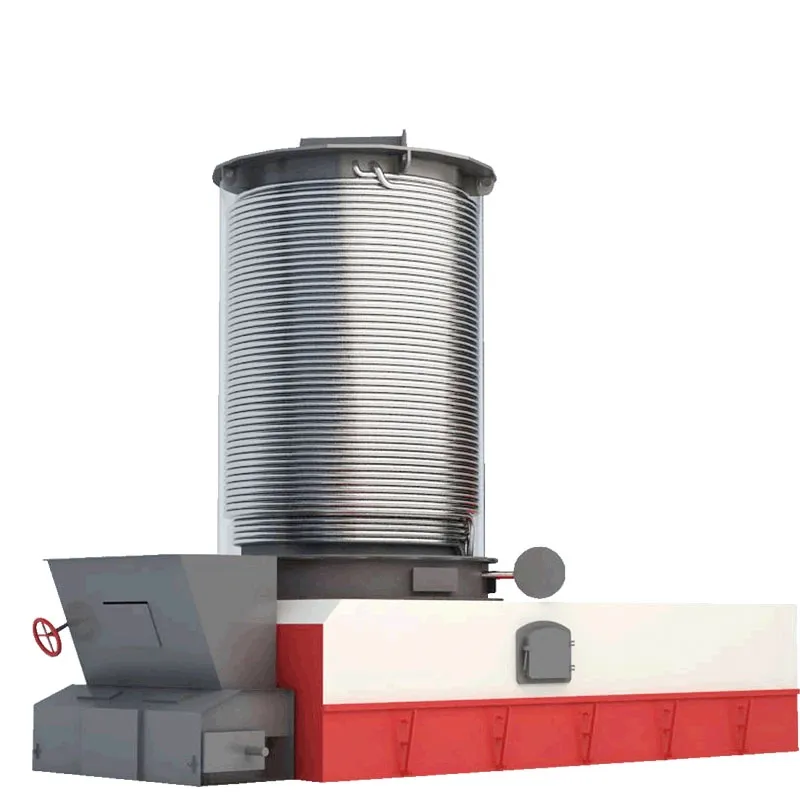vertical type thermal oil boiler
Vertical Type Thermal Oil Boiler An Efficient Heating Solution
In the realm of industrial heating solutions, vertical type thermal oil boilers have garnered significant attention for their unique design and efficiency. These boilers are engineered to provide stable thermal energy, essential for various applications across multiple sectors, including chemical, textile, food processing, and more. This article delves into the features, advantages, applications, and maintenance practices associated with vertical type thermal oil boilers, highlighting their role in modern industrial operations.
What is a Vertical Type Thermal Oil Boiler?
A vertical type thermal oil boiler operates on the principle of circulating thermal oil as a heat transfer medium. Unlike traditional water-steam boilers, these systems use thermal oils that can withstand higher temperatures without transforming into steam, offering a more stable heating solution. The vertical design of these boilers allows for a compact footprint, making them suitable for facilities where space is at a premium.
Key Features
1. Compact Design The vertical configuration makes these boilers smaller than their horizontal counterparts, allowing for easy installation in limited spaces. This design also facilitates a more straightforward setup and reduces the overall construction time required for installation.
2. High Efficiency Vertical type thermal oil boilers are known for their energy efficiency. They are designed to maximize heat transfer, resulting in lower fuel consumption and reduced operating costs. Many models come equipped with high-efficiency burners and advanced control systems that optimize performance.
3. Temperature Control These boilers can maintain precise temperature control, a critical factor for many industrial processes. Thermal oils enable heating up to 400°C (752°F) or more, providing the necessary heat levels for demanding applications.
4. Long Service Life Constructed from high-quality materials, vertical type thermal oil boilers are built to resist corrosion, thermal degradation, and other wear factors. With proper maintenance, these units can provide decades of reliable service.
Advantages of Using Vertical Type Thermal Oil Boilers
- Energy Savings Due to their high efficiency and effective thermal transfer, these boilers can lead to significant energy savings, helping industries lower operational costs.
- Reduced Maintenance The design of vertical boilers allows for easier maintenance and inspection, which is crucial for minimizing downtime and ensuring longevity.
- Environmental Benefits Many modern thermal oil boilers are equipped with emissions control technology, complying with environmental regulations and reducing harmful emissions
.- Versatile Applications Their ability to provide consistent heating across a wide range of temperatures makes them suitable for various industrial processes, from heating chemicals to drying textiles.
vertical type thermal oil boiler

Applications
Vertical type thermal oil boilers are used in numerous applications, such as
- Chemical Processing They provide necessary heat for reactions, distillation, and other processes in the chemical industry.
- Food Processing Used for heating oils and fats, preparing food products, and pasteurization processes.
- Textile Production These boilers offer the high temperatures needed for dyeing and finishing operations.
- Plastics and Rubber Providing the heat necessary for processing and curing synthetic materials.
Maintenance Practices
To ensure optimal performance and longevity of vertical type thermal oil boilers, regular maintenance is essential. Key maintenance practices include
1. Routine Inspections Regular checks for leaks, corrosion, and wear can help catch problems early. This should be done at least annually, or more frequently depending on usage levels.
2. Oil Quality Monitoring It’s vital to check the thermal oil quality regularly. Over time, thermal oil can degrade, impacting performance and efficiency. Replacing the oil as needed is crucial to maintaining optimal operation.
3. Cleaning Both internal and external cleaning of the boiler is essential to prevent buildup of deposits that may affect efficiency. Proper cleaning protocols should be followed as recommended by the manufacturer.
4. System Calibration Regular calibration of control systems ensures precise temperature management and efficient operation of the boiler.
Conclusion
Vertical type thermal oil boilers represent a smart choice for industries requiring reliable and efficient heating solutions. Their compact design, high efficiency, and versatile applications make them indispensable in today’s demanding industrial landscape. By investing in proper maintenance and understanding their operational benefits, industries can maximize the lifespan and performance of these essential heating systems. As technology progresses, the future for vertical type thermal oil boilers looks bright, promising even greater efficiencies and advancements for industrial heating needs.
-
Custom Steam Boilers Manufacturer | AI-Enhanced EfficiencyNewsJul.31,2025
-
Top Electric Steam Boiler Makers | AI-OptimizedNewsJul.31,2025
-
Top Electric Steam Boiler Manufacturers - High Efficiency SolutionsNewsJul.30,2025
-
Top Electric Steam Boiler Manufacturers – Efficient Industrial SolutionsNewsJul.29,2025
-
Top Electric Steam Boiler Manufacturers | Reliable Industrial SolutionsNewsJul.29,2025
-
OEM Steam Boiler Solutions for Custom Needs | High Efficiency & VersatilityNewsJul.29,2025

